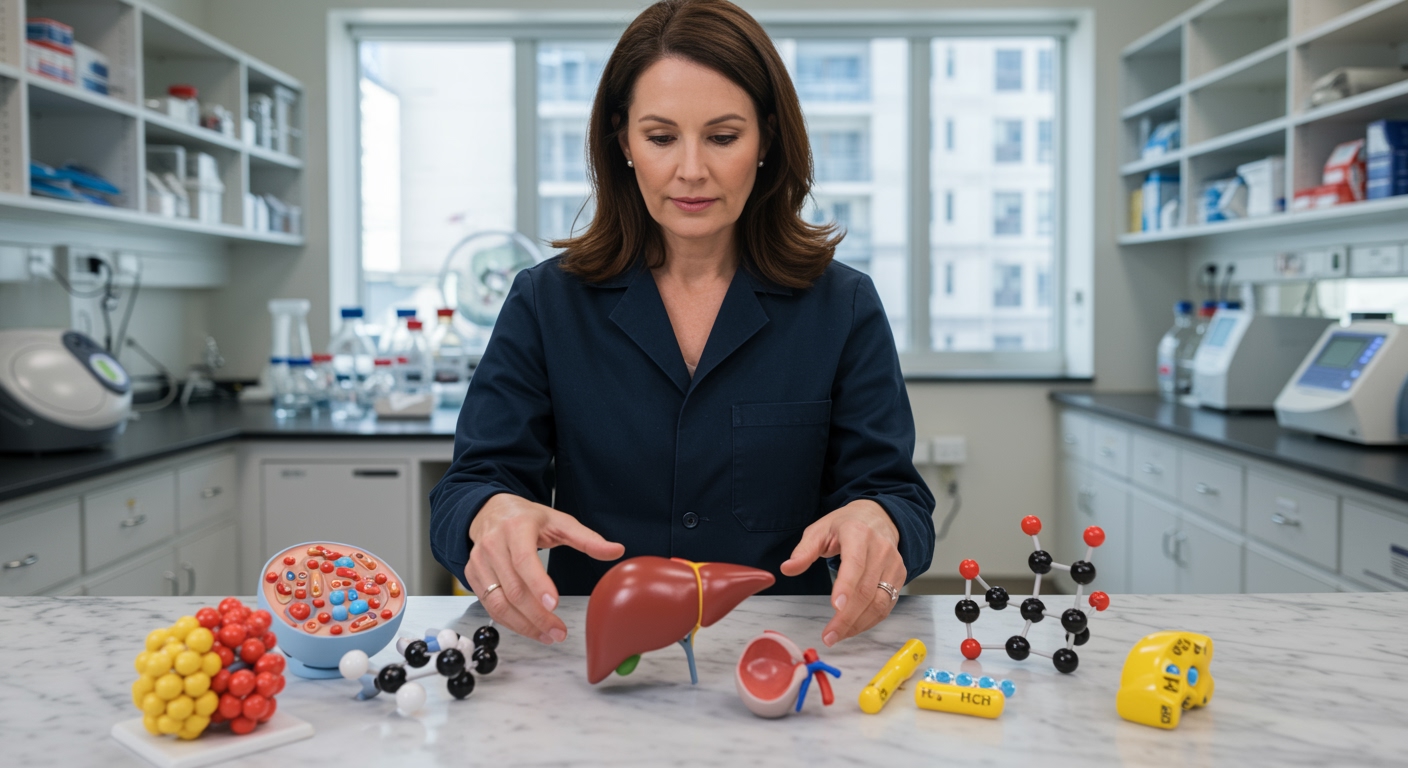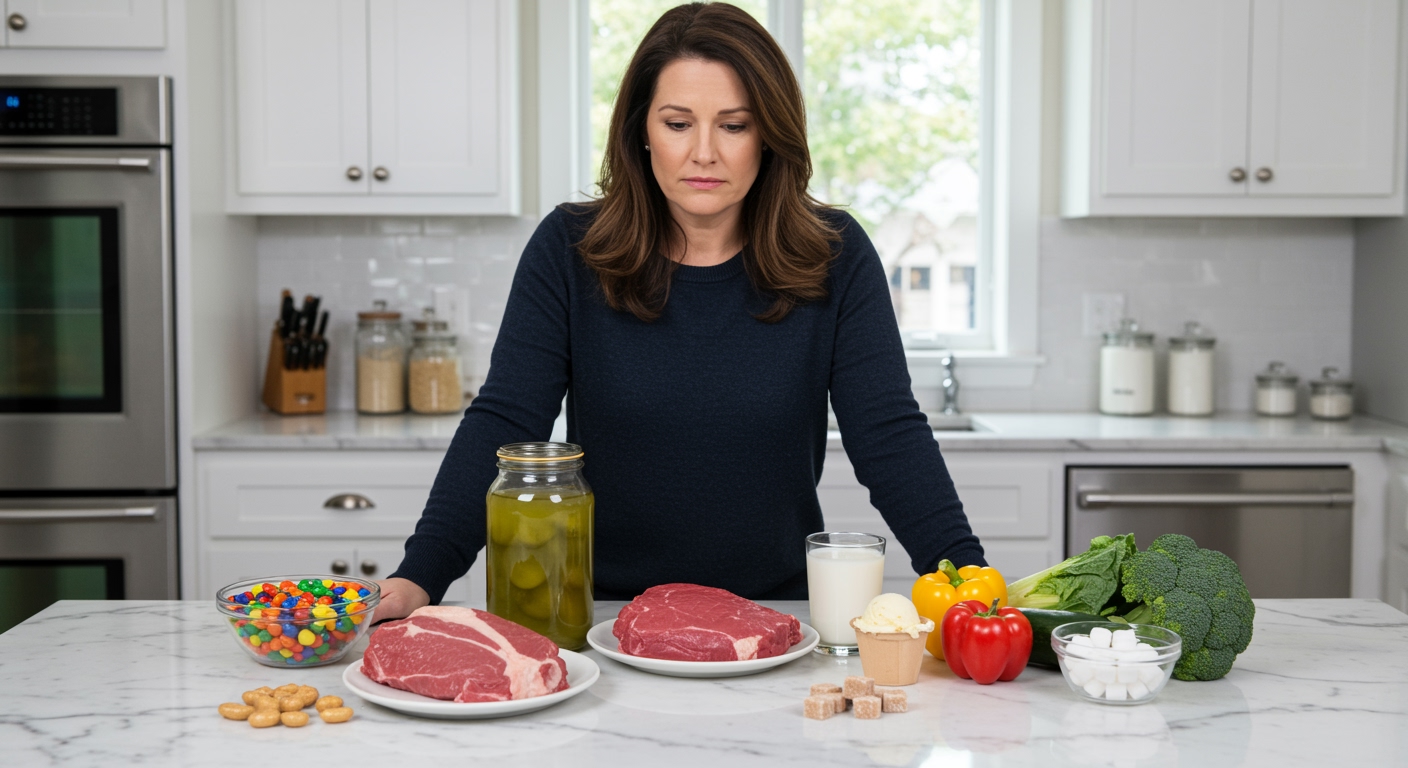✪ Key Highlight: Cancer cells can use ketones as backup fuel even when glucose is available, revealing new metabolic flexibility.
Introduction
Cancer cells have always been known as master survivors that adapt to any environment.
New research from the Van Andel Institute reveals that these cells can use ketones from fats as backup fuel, even when their preferred sugar source is readily available.
Hi, I’m Abdur, your nutrition coach and today I’m going to analyze this groundbreaking study that challenges everything we thought we knew about how cancer cells fuel their deadly growth.
How Do Cancer Cells Use Ketones For Energy?
The research team discovered that cancer cells can convert a specific ketone called β-hydroxybutyrate into acetyl-CoA, which is a crucial building block for making fatty acids and cholesterol.
This process happens through an alternate metabolic pathway that cancer cells use as a backup route when they need extra fuel for rapid growth and division.
Ketones are molecules that your body produces from fats during fasting periods or when following low-carb diets like the ketogenic diet.
Normally, your brain and muscles use these ketones for energy when glucose levels drop, but cancer cells have learned to exploit this natural backup system for their own survival.
Dr. Evan Lien, the study’s lead author, explained that cancer cells rely on a complex metabolic network to survive, and understanding these nutrient sources could help researchers find ways to interrupt their multi-layered defense system.
The most surprising finding was that cancer cells could use this ketone pathway even when plenty of glucose was available, suggesting they don’t always prefer sugar as their primary fuel source.
✪ Fact: Cancer cells can switch between glucose and ketones like a car that runs on both gasoline and electric power.
What Does This Mean For The Warburg Effect?
For decades, scientists believed that cancer cells primarily depended on glucose through a process called the Warburg effect.
This traditional view suggested that tumors have an insatiable appetite for sugar and consume glucose at much higher rates than normal cells.
The new findings challenge this long-held belief by showing that cancer cells have metabolic flexibility that goes far beyond simple sugar dependence.
Cancer cells can adapt to different nutrient environments by switching between various fuel sources, making them incredibly resilient and difficult to starve.
This discovery adds new complexity to our understanding of cancer metabolism and explains why some dietary interventions that aim to starve cancer cells of glucose don’t always work as expected.
The research builds on earlier studies from the same institute showing that immune cells like T cells also prefer ketones over glucose, highlighting how different cell types can use these alternative fuel sources.
✪ Note: The Warburg effect is named after Otto Warburg, who first observed cancer cells’ preference for glucose in the 1920s.
Should Cancer Patients Avoid Ketogenic Diets?
The relationship between ketones, ketogenic diets, and cancer is far more complicated than this single study suggests.
Dr. Lien emphasized that their research focused on the metabolism of a specific ketone and did not test the effects of popular diets like keto.
Some studies suggest that ketogenic diets might make certain cancers more sensitive to chemotherapy and radiation treatments.
However, recent research led by Dr. Wei Gu at Columbia University found that while ketogenic diets may slow primary tumor growth, they could also increase the risk of cancer spreading or metastasis in some animal models.
This surprising result was linked to a protein called BACH1, which helps cancer cells escape glucose-poor environments and move to other parts of the body.
Dr. Gu explained that cancer cells detect when a place is deprived of glucose and decide to escape to find better nutritional conditions, which can lead to metastasis.
These conflicting findings highlight why there are no easy answers when it comes to diet, cancer, and the immune system.
✪ Pro Tip: Never make drastic dietary changes during cancer treatment without consulting your oncologist first.
What Role Do Ketones Play In Cancer Treatment?
Ketone bodies play a complex role in cancer that goes beyond just providing fuel for tumor growth.
A recent review published in Biomedicines pointed out that ketone bodies can act as signaling molecules that influence inflammation and even affect how cancer cells respond to treatment.
Some research suggests that ketones might help make cancer cells more vulnerable to certain therapies by changing their metabolic state.
The key insight from the Van Andel Institute study is that cancer cells have backup routes to produce acetyl-CoA, which is essential for cell function and growth.
Understanding these alternate pathways could help researchers develop new strategies to cut off cancer’s energy supply more effectively.
By mapping out these backup routes, scientists hope to find ways to block multiple fuel sources simultaneously, making it harder for cancer cells to adapt and survive.
This approach could lead to more effective combination therapies that target cancer’s metabolic flexibility from multiple angles.
✪ Fact: Acetyl-CoA is like the universal currency that cells use to build fats, cholesterol, and other essential molecules.
The Bottom Line
This groundbreaking research reveals that cancer cells are even more adaptable than we previously understood, using ketones as backup fuel even when glucose is abundant.
Cancer doesn’t play by the rules we think we know, which is exactly why we must keep questioning everything we believe about how it works.
I’d love to hear your thoughts on this research and whether you have any questions about cancer metabolism or ketogenic diets – please share them in the comments below.
References
At NutritionCrown, we use quality and credible sources to ensure our content is accurate and trustworthy. Below are the sources referenced in creating this article:
- Van Andel Institute: Cancer cells can use backup routes to fuel their growth
- PubMed: Cancer cell metabolism research
- Columbia University: Study finds keto diet could contribute to cancer metastasis
- Nature Metabolism: Ketone metabolism in cancer cells
- University of Miami: How do ketones affect health and disease





